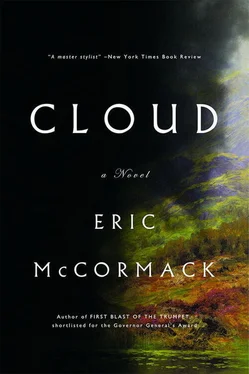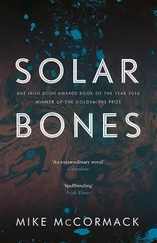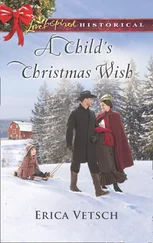The very sounds of these names at first had the effect on me of poetry, the way they did when I was a schoolboy, poring over an atlas and wishing I was anywhere but in the Tollgate.
But the more I travelled, the more disillusioned I became. These places with the lyrical-sounding names were now home to such unromantic realities as the modern hard-drug enterprise and its accompanying violence. The only kinds of ancient traditions the new thugs still honoured consisted in such barbarities as cutting off the hands of an enemy.
That made me feel less guilty about my own “legitimate” business.
DURING MY FREQUENT absences, Alicia had to act as both mother and father to Frank. They both looked forward to my return, especially Frank, to whom I was the bearer of gifts. At first, when he was very young, I’d bring animals of one sort or another, so that the spare bedroom became like a private zoo. A parrot from Australia would shriek “Good day, mate” to him alone whenever he brought it food. A pair of fierce-looking salamanders and a basilisk from Africa were also big successes — he was fascinated by how their apparent immobility was transformed into violent bursts of energy as they pounced on the insects that made up their dinner. The gift he loved most, however, was a three-foottall Oaxaca cactus inhabited by a colony of pygmy rats. Frank fed the rats several times a day with birdseed and spent hours trying to make friends with them. But he was so gigantic they never seemed able to conceive of him as a fellow creature.
BY THE AGE OF NINE, he became less interested in exotic animals, so I looked for other gifts that might stimulate his imagination. In a bazaar along the Malabar coast of India, I saw a trader selling some half-inch-tall, painted marble figurines from the sixteenth century. They were quite expensive and I’d no idea why anyone would have made these objects so small. But on a whim, because I knew how much Frank had enjoyed the pygmy rats, I bought the figurines for him.
When I got them home and he saw them, he immediately loved them, more than all his regular toys. With the help of a magnifying glass, he was able to transform these tiny fragments of stone into fully individualized men and women from another era.
“Look,” he said. “It’s like magic.”
And indeed, through the glass, the diminutive people seemed to leap into life in their colourful Eastern gowns and turbans, some of them wielding curved scimitars, their eyes looking directly into the observer’s. It was as though they’d been shrunk five hundred years ago and had been waiting for some shaman like Frank to restore them to their real size.
On the basis of his reaction to those figurines, I kept an eye open. When I was in Paris at a mining convention, I bought what looked like a box of matches, except that the matches were little ivory sticks made by the Inuit. The tips of the sticks were actually carvings of a variety of bears, foxes, sharks, whales, char, halibut, and cod, all done with marvellous precision. When Frank saw them he was captivated, and spent innumerable hours admiring the little creatures through his magnifying glass.
THE BIGGEST SUCCESS was a model railway. I found it in a classic toy store in Zurich, where I was overnighting on my way back from the Far East. The clockwork engine and the passenger cars were from the turn of the century and were meticulously engineered. The station buildings, the bridges and the scenery, the faces of the train crew and the passengers were detailed and convincing.
Frank, who had just turned ten, was ecstatic. For weeks he played exclusively with that train set, hour after hour. He gave names to the little people who inhabited its world, made up backgrounds for them, and talked to them. He introduced them to his figurines and to the creatures on the ivory sticks. Alicia often had difficulty persuading him to leave them so that he could eat his meals or go to bed.
FRANK WAS ALWAYS curious about how and where I’d acquired these gifts. For him, this seemed to be a vital part of the pleasure in having them. Mainly I told the straightforward truth, but I’d sometimes embroider the facts just to make the story a little more dramatic. On retelling it, I’d worry about forgetting some of the invented details.
It was those ivory sticks that led to a revelation.
One day, Frank was examining them at the table in the library while I was poring over the manual for one of our latest pumps. Out of the blue, he asked me once again for the story of how I’d got hold of the sticks. Almost without thinking, for my mind was so taken up with the technical jargon of the manual, I slipped up and told him the truth: that I’d seen the sticks in the window of a jewellery store near my hotel in Paris and bought them for him.
“But what about that old gypsy on crutches, begging at a street corner near Notre Dame, who told you about them?” Frank said. “You gave him a twenty-franc note and he was so grateful he took you to a secret shop that had the ivory sticks. It was up a dark side street at the top of a long set of stairs and you’d never have found it if he hadn’t hobbled alongside you to show you where it was.”
Having been caught out, I thought it best to confess that I’d invented the old man, and his crutches, and the secret store. That I sometimes made up stories around the gifts, to add to the fun. In other words, the stories weren’t the absolute truth.
Frank looked at me without blinking.
“I know that.” The abrupt way he said it sounded like a reprimand.
I was very surprised, and I promised to continue as before. But I knew I no longer needed to be anxious about forgetting some detail. He, of course, no longer had to pretend he didn’t know truth from fiction.
MINIATURE BOOKS were soon to become Frank’s great passion.
I’d been passing through Athens on one of my trips and had gone for a stroll in the Monastiraki area, near the Acropolis, looking for something for his upcoming twelfth birthday. A bookstore I went into specialized in rare books, including miniatures, some of which weren’t much bigger than postage stamps. I examined a number of them on a lectern that had a magnifier to assist the reader. All were beautifully printed, often with coloured illustrations that seemed as exact as in any book of regular size.
One tiny leather-bound book in particular caught my attention: The Book of Seasons , printed in Brussels in 1450. It was a three-hundred-page prayer book of some sort, with beautifully ornate capital letters at the beginning of each prayer. It wasn’t the Latin prayers or the ornate lettering that won me but the fifty pages that contained meticulously lifelike illustrations of medieval people and their activities. The book was expensive, but I’d a feeling Frank would like it, so I got it for him.
My instinct was good. From the moment he looked at it through a magnifying glass, he was enthralled. The very notion of an entire book in miniature, with all the attributes of a fullsized volume, astonished him just as much as it had me. Those illustrations, most of all, fascinated him.
One evening in the library he’d been studying them for a long time.
“Come and see this,” he said, sounding quite excited.
I went to the desk and he handed me the magnifying glass. Through it the tiny painting he’d been examining immediately became as large and clear as anything you might find in a gallery. The subject matter was religious: a saintly figure complete with halo was riding on horseback alongside a river that ran through a mountain pass, perhaps in the Alps. The mountains, the swirling currents of the river, the horse’s gear and its bulging muscles, the details of the rider’s medieval clothing, his somewhat pious but determined face as he looked upriver — all were rendered realistically and convincingly.
Читать дальше











